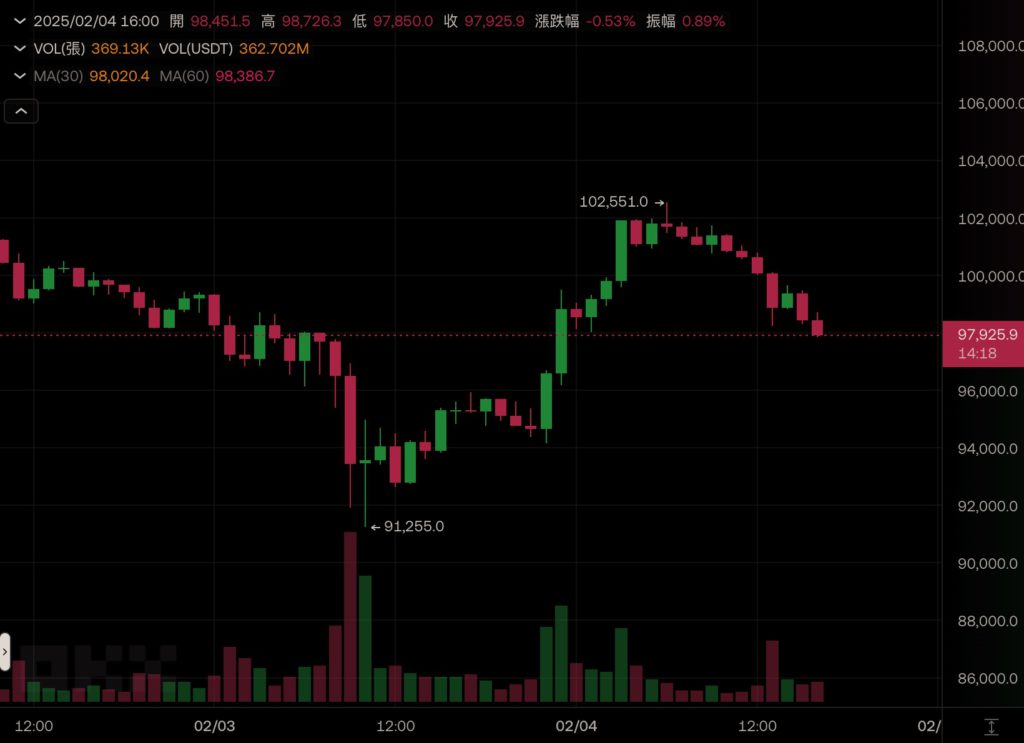US President Trump this morning announced a 25% tariff on Mexico and Canada, with a 30-day suspension to allow the two countries to make concessions on border and law enforcement, but China did not receive a similar grace period, and the new tariffs took effect at 0:01 am Eastern Time (1:01 pm Taiwan time) today.
China Launches Multiple Countermeasures Against Trump Tariffs
The Chinese government immediately launched a counterattack. The Customs Tariff Commission of the State Council of China announced today that in accordance with the Customs Law, Foreign Trade Law, and the basic principles of international law, and with the approval of the State Council, it will impose additional tariffs on certain imported goods originating in the US from February 10, 2025, with the following details:
- A 15% tariff on coal and liquefied natural gas
- A 10% tariff on crude oil, agricultural machinery, large-displacement vehicles, and pickup trucks
- Additional tariffs on imported goods originating in the US as listed in the annex, based on the current applicable tariff rates, with no change to the existing duty-free and preferential tax policies, and the additional tariffs will not be reduced or exempted
The Customs Tariff Commission of the State Council of China stated that on the 1st, the US government announced that it would impose a 10% tariff on all Chinese goods imported into the US on the grounds of fentanyl and other issues, which is a serious violation of WTO rules and is not only unhelpful in solving its own problems, but also disrupts the normal economic and trade cooperation between China and the US.
Meanwhile, the Chinese Ministry of Commerce has included tungsten, tellurium, bismuth, molybdenum, and indium in the export control list, and has included the US apparel company PVH and the biotechnology company Illumina in the unreliable entity list, stating that the two entities have disrupted normal transactions with Chinese companies and taken discriminatory measures against Chinese companies, seriously damaging the legitimate rights and interests of Chinese companies.
In addition, the State Administration for Market Regulation of China also announced today that it has initiated an investigation into Google for suspected violations of the Anti-Monopoly Law of the People's Republic of China.
China Responds Moderately, Leaving Room for Negotiations
Bloomberg analyzed that the countermeasures taken by Chinese President Xi Jinping seem to be carefully designed to avoid major backlash to the Chinese economy, while demonstrating China's ability to cause damage in multiple areas, including disrupting the supply chain of key minerals, and harming US companies with significant business in China, but the actual harm to the US is not that great.
According to ship tracking data, the US accounted for only about 6% of China's liquefied natural gas imports last year, and China imported very little coal from the US, while since 2010, Google's search and internet services have been inaccessible in China, and the company, although still maintaining business in China, is mainly focused on its advertising business.
ING Bank's Chief Economist for Greater China, Song Lin, believes that China's actions can be interpreted as a warning to US companies that rely on the Chinese market, and that China and the US still have hope of quickly withdrawing or delaying the tariffs after face-to-face talks, and that these measures are a "relatively low-key retaliation", as the proportion of energy imported by China from the US is very small.
Bitcoin Loses $100,000 Support Again
China's latest counterattack has once again worried investors, with Bitcoin falling below $100,000 in the afternoon. However, as Trump has stated that US-China negotiations may start soon, and if a final agreement is reached to suspend the tariffs, the market may be re-energized; but conversely, if the two countries' confrontation escalates, cryptocurrencies and the stock market may come under pressure again.
Andrew Kang, a partner at Mechanism Capital, posted on social media that if China really launches a trade war against the US, Ethereum could fall back to the $2,200-$2,400 range.







